OBI: “Garden orientation has always been in our DNA.”
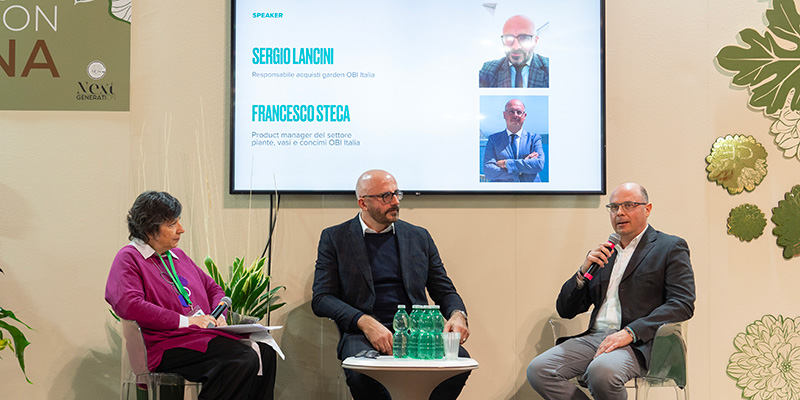
Why invite OBI to a conference tracing the evolution of the garden industry? Because the company, since its origins, has always presented a wide assortment dedicated to the garden-particularly live greenery-in its stores.
Guests of the conference “25 years of greenup, stories of trade gardening between hobby and green culture.” Sergio Lancini, garden purchasing manager, and Francesco Steca, product manager of plants, pots and fertilizers at OBI, confirm the importance of the garden macro sector and bright green and define it as a trait d’union among the countries where the sign is present. A choice that is now rubbing off on other brands but has always been an OBI peculiarity in the past.
OBI is a multinational company with a presence in many other countries abroad. Is this choice to include items from the garden sector common to other countries as well, or is it just peculiar to Italy?
The garden element is a trait d’union in all countries where OBI has a presence. Suffice it to say that the company’s mission statement quotes verbatim, “to be number one destination in home and garden.” Of course, in all countries the concept is declined differently because each country has differences and localisms, including where the store is placed. Normally, in a more urban setting, dedicated assortments will be thought of for the terrace, balcony, not forgetting the lucky few who also have larger spaces at their disposal. In more rural outlets, on the other hand, the focus will be more on the nursery, and on different product declinations. What is certain is that the garden orientation is always present.
How is the live plant handled inside a gds brico sign? How is it developed?
From the living point of view, the big difference is made by the stores based on the square footage and structures that are different from each other. The footprint we try to give is constant from north to south, at least in terms of the assortments of indoor plants, orchids, and green plants in general, which are purely of Dutch origin. The hard core at least is of Dutch origin.”
In what percentage?
For indoor green it is 80%.
And the rest is indigenous?
We also have some domestic productions, but the bulk is definitely Dutch. We make a difference with outdoor varieties: in some structured stores, from Jan. 1 to Dec. 31 there is a supply mainly of nursery plants. The big growth we have had has been there: we target producers specializing in acidophilic plants and aromatic plants with domestic production. This has been the great evolution in recent years, because we have been able to enter the customer’s garden and not just the balcony or terrace. From there, we expanded the possibility of building a garden or outdoor corner by including the other products we offer such as barbecue, swimming pool, gazebo. In short, having everything that is necessary for the relaxation and well-being of the client. In addition, another growth occurred in vegetable garden plants, fruit plants, and aromatic plants. All this has enabled the evolution of assortments. Compared to large garden centers, of course, we lack the available floor space, so we have to have the ability to rotate the assortment quickly–compatible with time–to have a wide range, however, in a more limited time frame.”
The evolution of supply
Diversification often means having very fast product rotation.
That’s right, we are never stationary, so that we deepen the assortments.
We also talk about the other garden commodities. How is OBI’s offering evolving?
We had change on several levels. Within garden machinery, there has been the advent of robot lawn mowers. Later, garden furniture also underwent a real cultural change. In fact, now the issue is no longer just meeting the ‘need to eat outdoors on the balcony but is to beautify the outdoor space, to relax in the garden. From this new concept, all the declinations of the various lounge sets and suspended seating were born. In recent years we are also witnessing a boom in pergolas, which have become more and more technological. In the decorative field, on the other hand, synthetic lawns are gaining ground.
Do people tend to spend more on garden products than on brico merchandise?
Covid gave us a hand in orienting the client, in understanding that outdoor space needs to be taken care of as much as indoor space also because we live in a climate that allows us to take advantage of outdoor spaces for several months of the year. Relaxing in a green space, we all know, has a completely different effect than an enclosed space. And the average receipt has increased on outdoor items because people buy, for example, patio furniture with the idea that it should last over the years, just as when they buy indoor furniture. While years ago outdoor furniture consisted mainly of plastic and resin, today we are much more oriented toward more durable materials or combinations of stronger materials and more aesthetically pleasing materials. An important evolution is taking place, which the customer fortunately recognizes.
Now back to living green, plants and products such as pots and fertilizers. With this particular climate changing abruptly, how have you organized the management of a live plant from a supply and logistics perspective?
With regard to live management in our stores, we make use in the selection of staff of colleagues who are specialists in the field either by training or previous experience. Therefore, in order to run a live department, one must have expertise and knowledge of the field, precisely because of the fact that plants are not drills. As for supplies, bi-weekly deliveries arrive to our stores, based on the assortments that are currently available for production. We work on a two-tiered procurement. Stores are autonomous in ordering their weekly requirements because the colleague’s sensitivity is critical in understanding the time of day and the weather forecast. In addition to the individual store’s freedom to place orders, there are the operations that we carry out as headquarters: the big campaigns and promotions. Deliveries are always direct to the point of sale, therefore, the store has a great deal of autonomy in management, nevertheless we are a working group where there is continuous discussion, training and information precisely to best prevent any unfavorable or overly favorable situations. You may also find yourself uncovered, for example, during a weekend to take advantage of sales. There is no perfect equation, and sensitivity and experience certainly serve to optimize results. Stores, in any case, have the capacity and speed to be able to change supplies according to the situation and the moment.
Do commodities such as compost and pots, which are non-perishable and not subject to the issues of the live plant, somehow follow the trend of the plant?
The potting soil sector is following the trend that indicates a customer who is always looking for quality potting soil and a specific brand, also prompted by social media, blogs, influencers. Slightly more static is the jar compartment, at least in our experience. We experienced the post covid boom with a major inducement, but the following year this was not repeated. Energy crisis, too high costs, logistics, transportation, have somewhat altered this market, and it has all come down to the final price of these types of products. The pots do not need to be changed, and the client had to choose: potting soil I need, fertilization and protection as well, and the pot can last more than one season.
Speaking of seasonal adjustment of the industry. Are there products, which used to be seasonal, that are or have already become continuous among OBI’s categories?
Operations are carried out during the season and efforts are made to expand the assortment with opportunities for customers to find new and special lines. One example is metal balconies, which are typically spring or summer, yet we have requests even in the fall, when we usually divest them for the logic of space. Having a minimum assortment of balconies even in the fall in the proper proportions helps.
More and more formats
Staff training is one of the most important issues especially in the case of a live and perishable product. How do you manage to find staff and avoid excessive turnover?
It is difficult and very complicated, especially at a time when we have new openings to deal with. The process of selecting and training people has been a long one. This is compounded by being asked to work on Saturdays and Sundays and in different time slots. It is a challenge every time and the turnover is there, no use hiding it. However, in my opinion, the even bigger problem is not so much finding the person but the training. If we want to make a difference, compared to online, we must have trained people in the store who know the product well and can instill peace of mind in the consumer who is buying. The real challenge we have taken on especially this year is training.
Do you require special characteristics or degrees to work in the living green sector, for example?An agricultural floriculture background or previous experience in the field is preferred so that you can count on someone who can give the right advice to the client. This is what really allows us to grow. Although we try to maintain competitive prices, the only way to make a difference is to get assistance from people who know what they are talking about.
Pictured: from left, Sergio Lancini, garden purchasing manager, and Francesco Steca, product manager of plants, pots and fertilizers at OBI.
Read also:
Silvano Girelli, Flover: ” The Garden Center, experiential and aggregative.”
Roncador Floriculture, when the greenhouse opens to the world
Leroy Merlin Garden, where the fifth room takes center stage
and Thalia Taioli‘s comment on the (RE)GENEROUS blog.
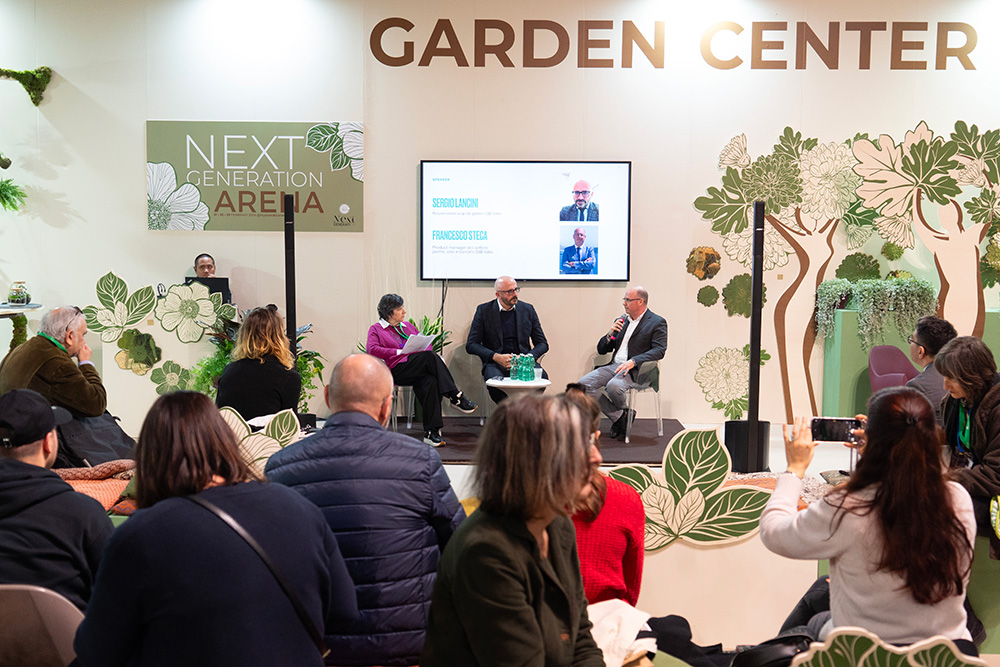

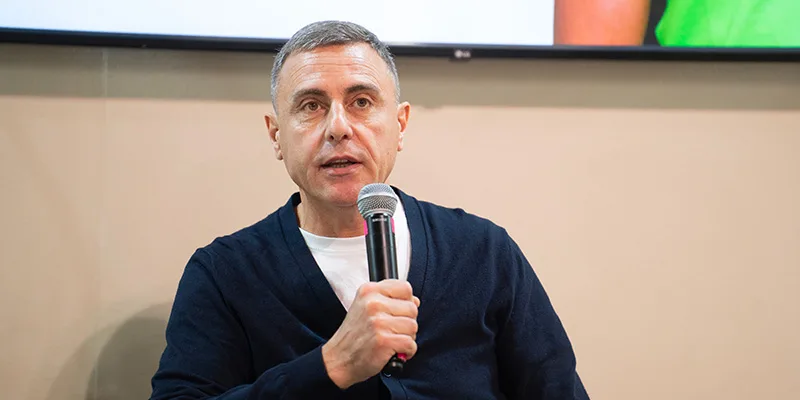
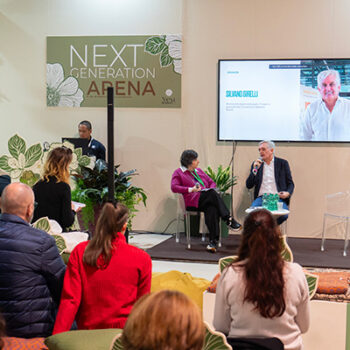
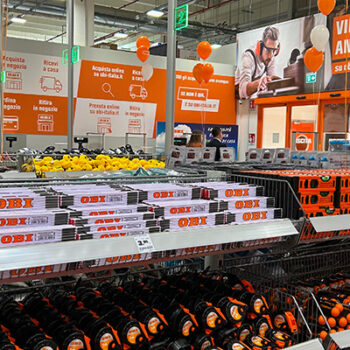
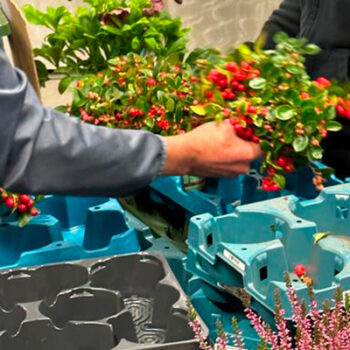
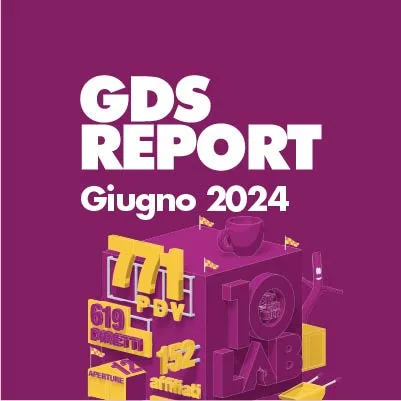
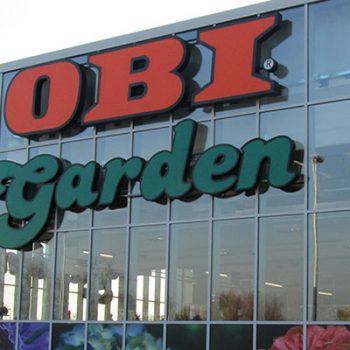
Facci sapere cosa ne pensi